It may be a little dramatic to open this list by claiming that the universe is conspiring against us music editors, but I’m running out of alternative theories as to how every year we’re seeing more successful crossover artists outside of the near-universally agreed upon holy trinity of hip mainstream genres: pop, rock, and rap. It used to be fairly easy to compile a list like this which combines the influence of the zeitgeist with our own editorial agenda, but in the past few years we’ve had to pull our scope way back to consider fringe genres that seem to become less so with each passing buzzband drawing from unexpected influences.
While none of the outsider figures listed below have reached the level of success hardcore heroes Turnstile achieved last year, or post-minimalist figurehead Floating Points achieved the year before with the help of spiritual jazz icon Pharoah Sanders, it’s become quite a bit less unlikely that these 25 artists should achieve that sort of breakout success by the time we’re sharing our follow-up list in December.
For now, here are our picks for the 25 best albums of the first half of 2023.

Baby Rose, Through and Through
Through and Through is the latest euphonious release from Jasmine Rose Wilson, an R&B star in the making under the moniker Baby Rose whose contralto voice can flow effortlessly from low to high notes, earning loose comparisons to legendary forebears like Nina Simone. A textbook example of how pleasing well-done production and syncopation can be to the ear, Through and Through is R&B perfection. Repeating rhythms, echoed-out guitar chords, and irresistible harmonies let Wilson’s sultry voice meld with the surrounding instrumentation like melting butter on a hot pan. Her clever songwriting also showcases her ability to explore multiple emotional realities using her voice alone, moving smoothly between opposing emotional states like mental anguish and elation using a large arsenal of vocal capabilities that few others possess, especially in her range.
Recorded in LA at Revival at the Complex, a studio built by Earth, Wind & Fire and stocked with vintage analog equipment from the ’70s, Through and Through deliberately emulates music from that decade, but never to the point of parody or cliché. Wilson’s burgeoning talent has landed her a spot on the Creed III soundtrack and has gotten the attention of high-caliber contemporaries-turned-collaborators SZA, Kehlani, and J. Cole. Through and Through, however, will certainly get yours. — Juan Gutierrez
Read our review of Through and Through here.

Blondshell, Blondshell
It’s hard to pinpoint the exact moment when everyone knew Blondshell was going to be the next fixation of indie-leaning music fans across the country—it happened slowly enough at first, and then all at once. The SXSW showcases—including a packed-to-the-rafters set at FLOODfest—were upward of seven, and if you spent a dozen or so hours in your car tuned into SiriusXMU, you probably heard “Kiss City” five times and “Olympus” five more. There’s a reason why Blondshell—the moniker of Sabrina Teitelbaum—was, and continues to be, seemingly everywhere. The songs on her self-titled full-length are instantly memorable but endure with repeated listens. The hype, as seems to be less and less the case these days, was entirely justified.
On her Partisan Records debut, the LA-based songwriter showcases a penchant for ’90s indie-rock guitars (and ’00s pop culture references—shoutout Veronica Mars), stadium-ready hooks, and just enough gnarly grunge energy to give the music a serious ass-kicking mentality. The album was made by Teitelbaum in her apartment during the pandemic, and there’s an intoxicating blend of hope and desperation that imbues the record. It’s this aggression that propels it to its highest heights, stuck between buying in and wanting out. “I think I wanna save you / I think I wanna join in,” she sings on “Joiner,” “I think I wanna save you / Two people from the bottom of the bin.” Sometimes not knowing is the most interesting answer you can give. — Will Schube
Read our Breaking feature on Blondshell here.

boygenius, the record
boygenius probably weren’t an actual supergroup when the trio formed in 2018. Its three members—Lucy Dacus, Phoebe Bridgers, and Julien Baker—had all received widespread critical acclaim in their solo careers, but Bridgers was by far the best-known. Now, with the release of their debut album the record, all that has changed. Not only did Kristen Stewart direct three videos for the group (compiled and released as boygenius: the film), the record hit #4 on the Billboard charts and the top spot in the UK, Ireland, and The Netherlands—the first time any of its members had a #1 album.
And deservedly so. the record brings together their individual lyrical and musical talent, but manages to keep their personalities distinct at the same time. Whether they’re taking turns leading songs (Baker on the majestically mournful “$20,” Bridgers on the forlorn hush of “Emily I’m Sorry,” or Dacus on the solemn beauty of “We’re in Love”) or sharing verses within them, it all coalesces to create a snapshot of life—and lives—in turmoil and the consequences of the wreckage that produces. There’s a little levity here and there, namely in the whimsical “Leonard Cohen,” but even that highlights just how well the three songwriters are able to pull apart the fundamental fabric of our short existence on this planet and the depth and breadth of emotion we feel in that time. — Mischa Pearlman
Read our review of the record here.
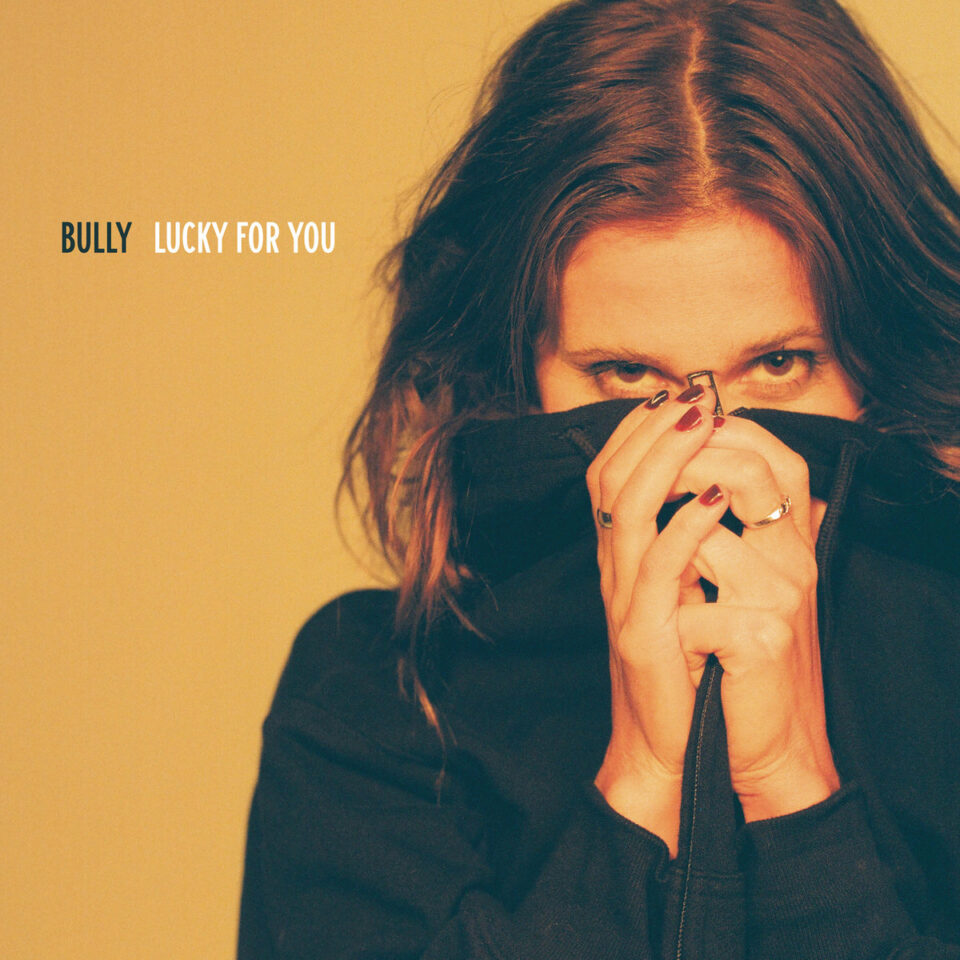
Bully, Lucky for You
You have to strain to hear it, but in the wash of tremolo guitar that opens Lucky for You is a recording of laughter and the words “Good girrrl.” If you know the story behind Bully’s new album, this is the point where that Michael Scott quote probably springs to mind: “This is gonna hurt like a motherfucker.” Alicia Bognanno has always written her way from pain through to catharsis; what makes her music so compelling is the frank discussions of bodily autonomy, bipolar disorder, and addiction that she telegraphs via rousing grunge-pop. But throughout each challenge in her life—and even before Bully—Bognanno had her dependable companion Mezzi, a German Shepherd/Husky cross who passed away in the Spring of 2022. This time it was going to take something huge, something extraordinary, to work through the pain.
Lucky for You is that something. Disarmingly accessible, Bognanno’s lyrics allow the world to share in her grief. “I want my baby girl back / If you ask me she was gone too soon / I’m left writing in an empty room / Searching for her in the moon,” she sings on “A Wonderful Life.” If that sounds too devastating to bear, anthemic hooks and cinder-block power chords come to the rescue, thrusting light into that empty room. Sonically, we aren’t far from classic Bully—Bognanno’s authoritative shout-sing still has the power to start wars—but this is a more hi-def, mainstream iteration. Some call it poorly produced. We call it a gift that keeps on giving. — Hayden Merrick
Read our interview with Bully here.

Caroline Polachek, Desire, I Want to Turn Into You
Since disbanding the Brooklyn synthpop duo Chairlift in 2017, Caroline Polachek picked up right where that band left off by constructing bigger and wider pop futures with each new phase of her solo career. Her second LP under her own name since that dissolution unfolds like a grand unveiling of her utopian pop vision, with opener “Welcome to My Island” launching Polachek into daring vocal acrobatics to set the stage. Yet there’s something curiously timeless about the songwriting Polachek employs that makes Desire especially alluring. Late-album highlight “Blood and Butter” lands in the intersection of 2000s acoustic singer-songwriter pop, the trip-hop soundtrack to a PlayStation platformer, and Celtic soul—bagpipes and all.
Meanwhile, closer “Billions” translates the stutter hooks and children’s choirs of ’60s pop and rock into the transcendence found in a skittering electronic beat. Even “Bunny Is a Rider,” the album’s most contemporaneous track, melds hyperpop flourishes with a loose tropicality and whistle harmonies that would’ve fit right in on the pop charts a decade earlier. It’s a fluidity of eras succinctly captured by her lyrics on “Billions” about “sexting sonnets,” reflecting a record seeking to find a romantic classicism in a sleek modernist pop landscape. Polachek’s vision doesn’t forsake pop’s past; it’s one that embraces the seeds pop history can plant for its future. It’s anything but an island unto itself. — Natalie Marlin
Read our review of Desire, I Want to Turn Into You here.

Christine and the Queens, Paranoïa, Angels, True Love
That Héloïse Adélaïde Letissier—a.k.a. French vocalist and composer Christine—would move from making achingly dramatic albums such as 2014’s Chaleur humaine to a set of pained theatrical suites based on the inspiration of playwright Tony Kushner’s iconic HIV-AIDS elegy Angels in America (to say nothing of the influence imposed by the recent death of Chris’ mother) sounds more organic than a sleepy synth-pop album should be. That is, however, the discreet charm of the bourgeoisie Chris when it comes to Paranoïa, Angels, True Love.
Co-produced and co-written by hip-hop-maker-du-jour Mike Dean, there’s a symmetrically icy clarity to Chris’ melancholy melodies that doesn’t exist elsewhere in his work. Unlike, say, the oddball wonk of 2022’s Redcar, the sad distingue and still-life beauty of Paranoïa, Angels, True Love is elegantly evenhanded and richly sophisticated beyond compare—even if, on occasion, its lengthy run at sloe-ginning, mid-tempo consistency is a bit much to bear. Within its chilled, steady precision (a perfectly made and bracing martini is an apt analogy here), the thrill to Paranoïa, Angels, True Love and its un-merry melodies is the manner in which Chris rights its unsteadied psychic ships with his heavenly neo-falsetto and lifts its funereal vibes with studied, scripted prayers. — A.D. Amorosi
Read our digital cover story with Christine and the Queens here.
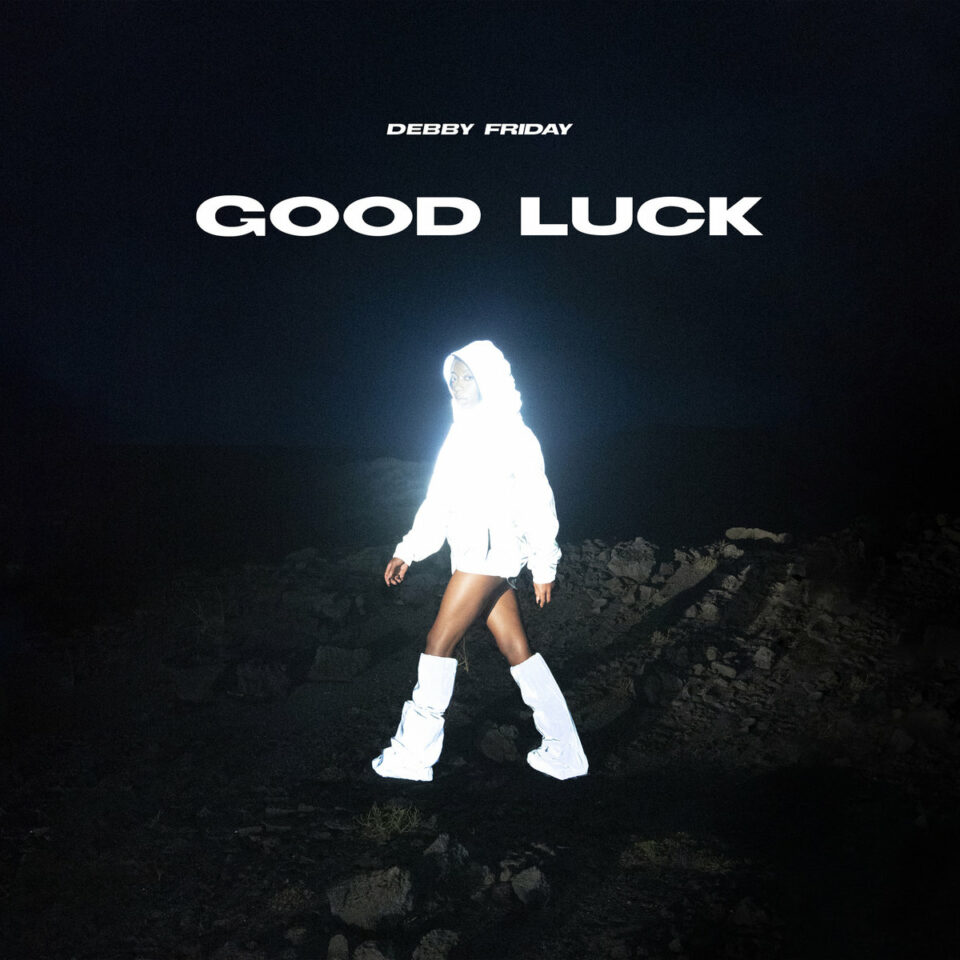
Debby Friday, GOOD LUCK
Debby Friday’s GOOD LUCK is the sound of a night out on the brink of disaster. The Canadian multi-hyphenate flexes all of her muscles on her debut album for Sub Pop, hopping from menacing noise to indie rock to rap to broken beat and techno without ever sacrificing hooks or forward momentum. The album’s giddier front end sets an enticing conceit: this is music clearly attuned to what works in a nightclub (Friday was a DJ first before stepping into production and songwriting, after all), but stretched to its very limits of functionality and taste.
GOOD LUCK’s fulcrum point, then, is the stadium-sized “WHAT A MAN.” Aiming its crosshairs directly between glammed-up jock jams and dubby post-punk, Friday pairs guitar solos so slick and shreddy you can nearly smell the Aqua Net over nasty, descending bassline fuzz and kick drums so heavy they could punch holes in the air of any dank space. Things only get sludgier and stranger from there on the record’s more abrasive back half. Lurching tempos, pitch-shifted vocals, and blown-out sonics are the game here, with a three-track run so thick with digital noise it threatens to swallow the rest of the album whole. However, the closing “WAKE UP” and its scratched-CD noises hit like a baptism—or at least like a splash of cold water over a dark sink at some ungodly hour. — Dillon Riley
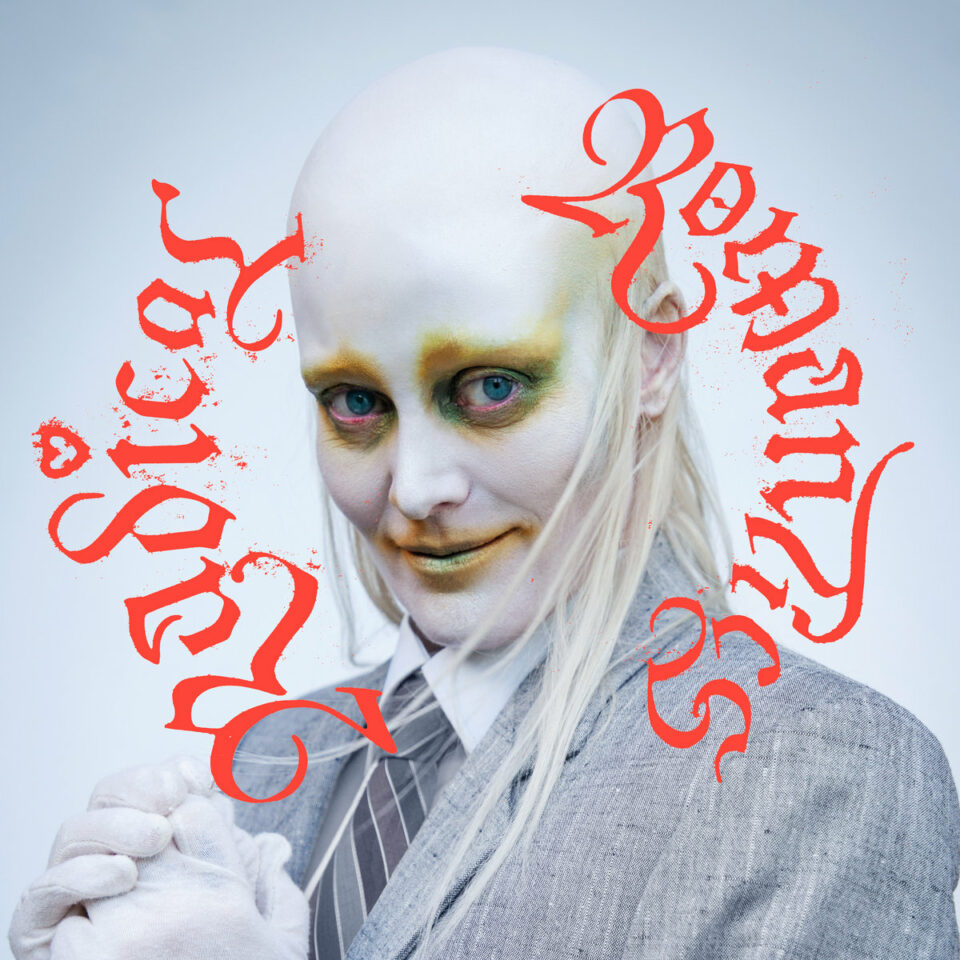
Fever Ray, Radical Romantics
Fever Ray’s Karin Dreijer is finding a new way forward on their third album Radical Romantics, the former The Knife vocalist’s most intimate and vulnerable release yet. “To be able to love,” they explained in an interview tied to the record’s release, “you have to find out about yourself and what your own needs are, and you have to accept them, which can be super difficult. With that comes a sort of sadness, which I think is much more present [on this album].” On Radical Romantics, in other words, they give into the new discoveries about themself, their desires, and their needs within relationships.
“Looking for a person / With a special kind of smile / Teeth like razors / Fingers like spice,” they sing on “Looking for a Ghost.” Like an old-school personal advertisement, Dreijer lists poetic, monstrous specifications for the love they’re seeking. Producer Nídia weaves an oscillating synth with swinging, pronounced drums to accentuate the nervous, somewhat hesitant excitement of pursuing desire. “Looking for a ghost / In the midst of life / Asking for a friend / Who’s kind of shy,” they note later on the track. Throughout Radical Romantics, Dreijer is aware of the risks and anxieties that come with discovering new dimensions of themself and their relationships. But they relinquish themself to ecstasy; there’s no more time to waste. — Margaret Farrell
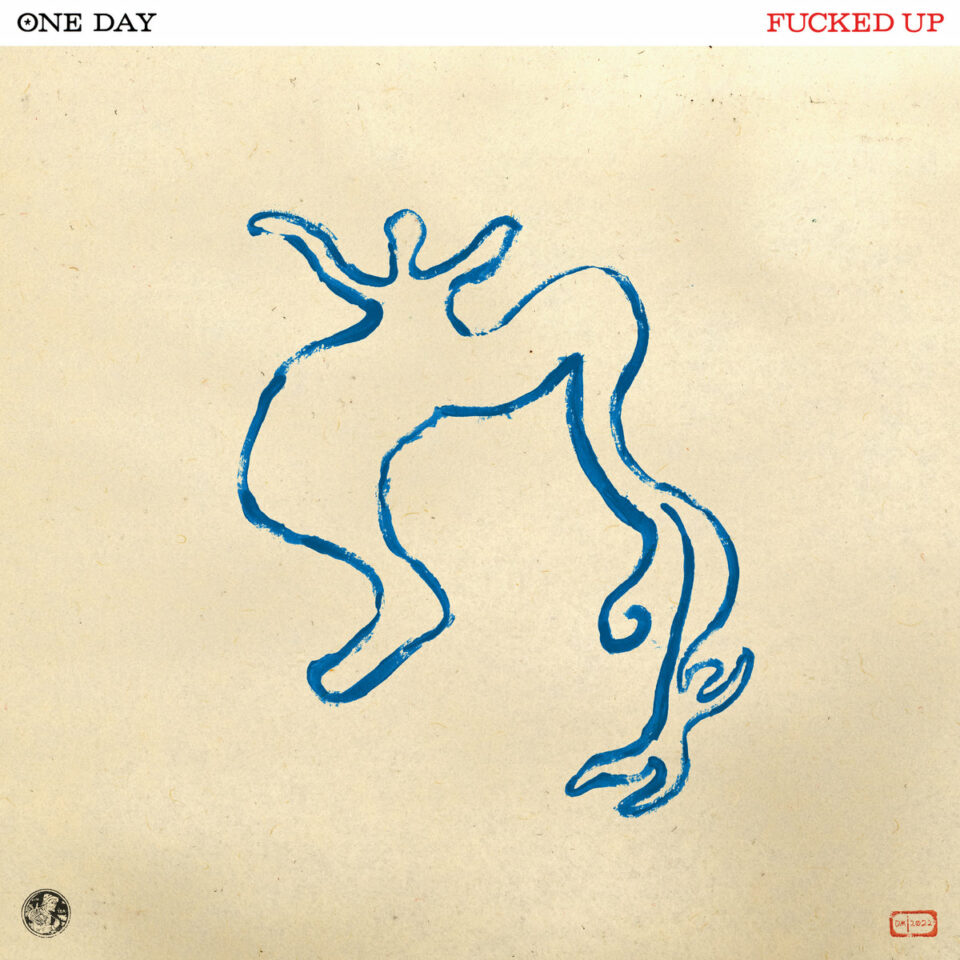
Fucked Up, One Day
All the way back in 2008, Fucked Up won over the Polaris committee and, more impressively, a relatively closed-minded blog-rock audience with The Chemistry of Common Life, a hardcore album that did wonders for grafting the once-isolated genre to a broader conversation, arguably even paving the way for something like Turnstile to happen 15 years down the road. On the cusp of SEO-happy headlines deciding the fate of music coverage, it didn’t hurt that the oddly life-affirming rock opera boasted guest vocals from an array of their Canadian musical peers (and, for some reason, the very not-Canadian Vivian Girls), steering the supertanker toward audiences privy to Death From Above’s agreeable dance-punk, say, or even City and Colour’s introspective folk.
Yet all these years later, the hardcore-punk outfit have little need for voices outside of their own to alter the chemistry of the quintet’s common objective. One Day is the perfect balance of punk-as-fuck vocalist Damian Abraham’s unyielding reverence for the genre and his bandmates’ evident taste for sticky-sweeter sounds, as re-established each time anyone on the band’s roster launches a new power-pop side-project. In fact with Mike Haliechuk taking on additional vocal work here—and, perhaps, due to One Day contrasting with the stoner-metal EP Fucked Up released just four months prior—their sixth proper album feels like the one where they’re finally leaning into the imputations that they might be weird. — Mike LeSuer
Read our review of One Day here.
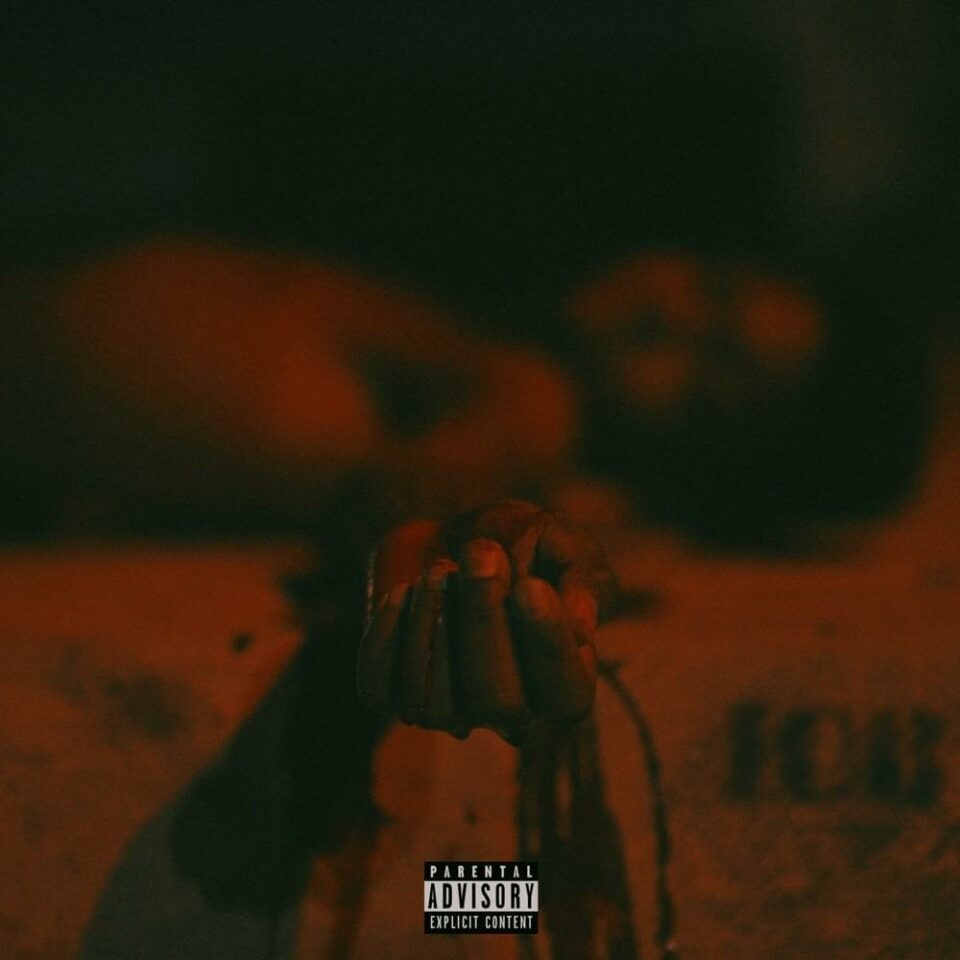
ICECOLDBISHOP, Generational Curse
On ICECOLDBISHOP’s breakthrough LP Generational Curse, the South Central emcee inserts himself into the generation-defining West Coast classics that he grew up obsessing over. There are traces of Snoop and Dre, Eazy-E and Ice Cube. He’s got the same scars Kendrick sang about on m.A.A.d. city, and puts his community first like the late, great Nipsey Hussle. Like all of those voices that preceded his, BISHOP puts his own spin on the genre and spends the entirety of Generational Curse asserting his POV. On “THE GOV’T GAVE US GUNS,” he slides onto the track with a nonchalance that suggests the dead-eyed nihilism of someone who’s seen too much in too quick a time. “I just bought a motherfuckin’ Draco today,” he matter-of-factly repeats during the song’s intro.
After four bars, though, his voice grows in volume and tone, landing somewhere between angry and broken. The kicker hits even harder: “The government gave us all guns, so we can kill each other.” The tragedy isn’t that this exists in the first place, but that they’re not even ashamed enough to do it covertly. Throughout the album, BISHOP presents these juxtapositions and interrogates them with a mix of curiosity and disgust. Occasionally, the emcee lets himself flex, and it turns out he can have fun as well as your party rap favorites. On the Kenny Beats–produced “DICKIES SUIT,” he raps, “I’m like Zion with the squad but we can really Duke / You turnin’ down fades, we heard your squad went really mute.” Generational Curse is about that very concept, but more importantly, it’s a celebration of the figure that comes along that shows the code to snap it and eradicate any demons once and for all. — Will Schube
Read our interview with ICECOLDBISHOP here.

Indigo De Souza, All of This Will End
It feels weird to say this so early in Asheville-based songwriter Indigo De Souza’s career, but All of This Will End feels like a culmination of sorts. Over the course of her first two records, De Souza has taken a foundation of ’90s-inspired grunge and continued to add everything from straight-up stadium-ready pop to sludgey alt-country, all accompanied by a specificity that gives the whole thing shape. That specificity is, in large part, De Souza herself, a writer and performer of clear star power who has separated herself from peers by sheer force of will and personality. Lines like “Maybe I will always be a little bit sad,” from the deceivingly despondent “Parking Lot,” could be hard to pull off with sincerity, but De Souza’s discography is full of this kind of naked honesty.
When the album first dropped two months ago I might have cited another song to define her unique ability, but All of This Will End is the sort of record where its best songs exist on a rolling basis. That said, it’s pretty hard to top “You Can Be Mean,” the platonic ideal of grunge-pop and an absolute clinic in performance, perspective, and songwriting. “When will it get any better? / When’s it gonna get any better?” sings De Souza with a characteristic blend of hunger and exhaustion. I’m not sure how it gets much better than All of This Will End, but I suspect it will. — Sean Fennell
Read our digital cover story with Indigo De Souza here.

Jason Isbell and the 400 Unit, Weathervanes
Collectively as music listeners, we have a tendency to determine a record’s strength by the number of hit singles it contains, how many copies it sells, or how many new followers it gains the artist on social media. But far more important is how much the album mattered or made a difference—to the artist or to the listener. In the case of Jason Isbell and the 400 Unit, their latest LP cements the band’s direction and captures the musicians brimming with confidence. Indeed, the group’s ninth studio album Weathervanes features Isbell and company at peak potency with their roots-informed sound.
“I try to write from a place of awareness,” Isbell shared in our recent interview with the songwriter. “The inspiration for writing a song isn’t something that’s hard for me to find as long as I remain aware of my surroundings and pay attention to people, whether they’re strangers or friends.” Deliberately shifting one’s focus from themselves to other people and the outside world is one of the hallmarks of recovery. Isbell, now 11 years sober, is stronger than ever in his songwriting—it appears those two truths are not mutually exclusive. Roots music and Americana have their fair share of charlatans, musicians who see those genres become in vogue and mold their persona so they can capitalize on the moment. As demonstrated on Weathervanes, Isbell is of the other breed: He’s so authentic, it hurts. — Kurt Orzeck
Read our interview with Jason Isbell here.

Jessie Ware, That! Feels Good!
On 2020’s What’s Your Pleasure?, Jessie Ware indulged in mirror-ball twirling disco, fluorescent new wave, and decadent synth music, finding the sweet spot of the limelight and relishing in it. Her latest album That! Feels Good! showcases Ware going full-throttle glam galore. “They wanted me to be this kind of dominatrix commander to them,” Ware explained in a recent interview, revealing how she saw this new album as a conversation between her and her fans. “They relished it, and they willed it on. So I was like, OK, I’ll give you a bit more of that!”
If What’s Your Pleasure? was Ware taking a few sips of the champagne, That! Feels Good! is her front-flipping into a pool of Krug. “Treasures to be found / Medicine of life / Freedom is a sound / And pleasure is a right!” she triumphantly proclaims during the title track’s bridge. Ware becomes a formidable dancefloor goddess across the LP, commanding endless euphoria. Her voice reaches divine highs alongside an ebullient piano on “Free Yourself.” “Keep on moving up that mountain top,” she sings on the track, “Why don’t you please yourself?”—the latter lyric being more of an instruction than a query. The jubilation of That! Feels Good! isn’t pure delusional ecstasy, either. “Beautiful People” opens with existential dread: “I wake up in the morning and I ask myself / ‘What am I doing on this planet?’” Life is hard, and it’s not enough to just survive anymore. Ware reminds us that pleasure, glamor, sparkle, and bubbles are all avenues for feeling alive. — Margaret Farrell
Read our review of That! Feels Good! here.
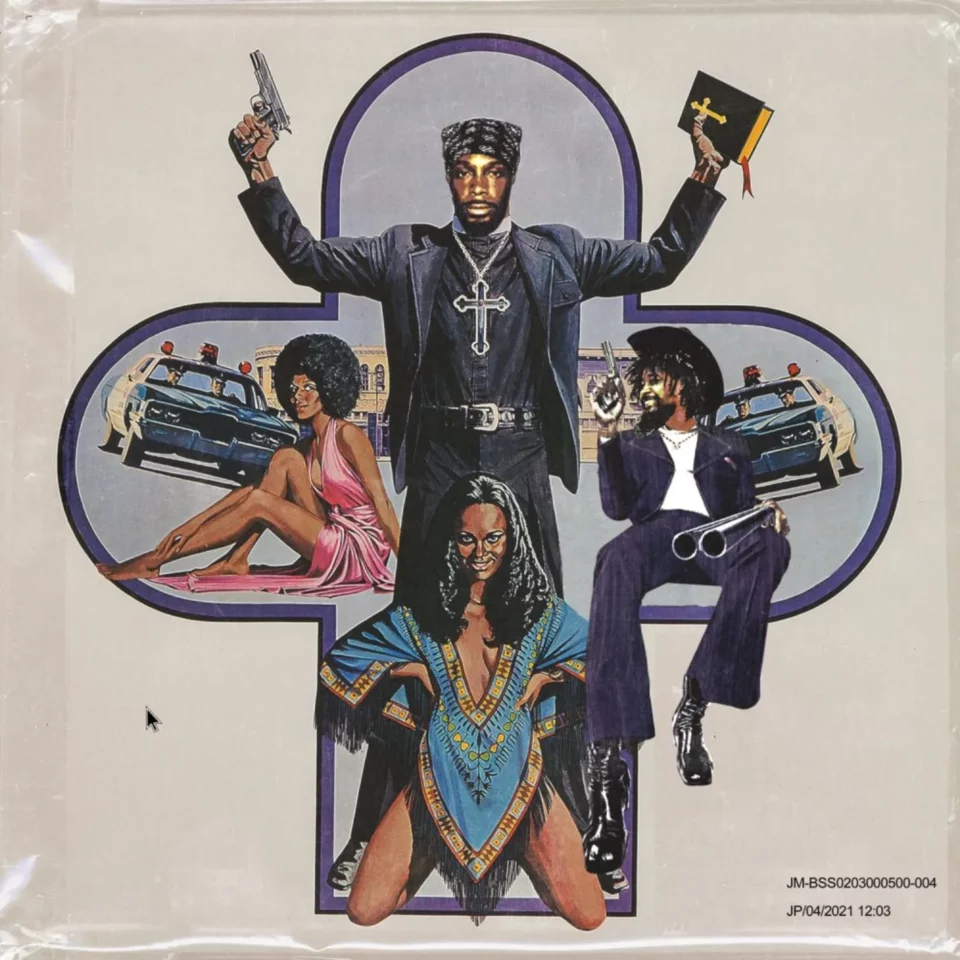
JPEGMAFIA & Danny Brown - Scaring the Hoes
JPEGMAFIA’s first LP since departing Republic Records isn’t experimental so much as gleefully uncommercial. The underground rapper/producer announced the end of his contract in 2021, declaring “I don’t make music for casuals”—and on Scaring the Hoes, he says it one more time for the people in the back, loud enough to get the message through even the thickest industry skulls. Trading irreverent verses with fellow outsider Danny Brown, he takes pop-rap to task over samples of Japanese advertisements, saxophone skronks, and drums designed to stretch your speaker cones to their limits. Highlight track “Garbage Pale Kids” has it all: Brown making himself laugh with anilingus jokes and JPEGMAFIA personally playing a guitar track gnarlier than anything on 10,000 gecs.
Brown also delivers one of the record’s most direct disses: “Man, I can’t fuck with y’all n****s, y’all let Jack Harlow sell y’all chicken.” Up against such a creatively bankrupt mainstream, the sensory overload of Scaring the Hoes can be cleansing—something to finally scour the chicken-hocking Harlow’s “First Class” from your memory. If you needed it, this is your reminder to kill the out-of-touch executive in your head who “doesn’t hear a single.” And the next time your more-settled future self travels back in time to snatch the aux cable from your hand through the window of a moving car, shake them off and turn this up instead. — Taylor Ruckle
Read our review of Scaring the Hoes here.
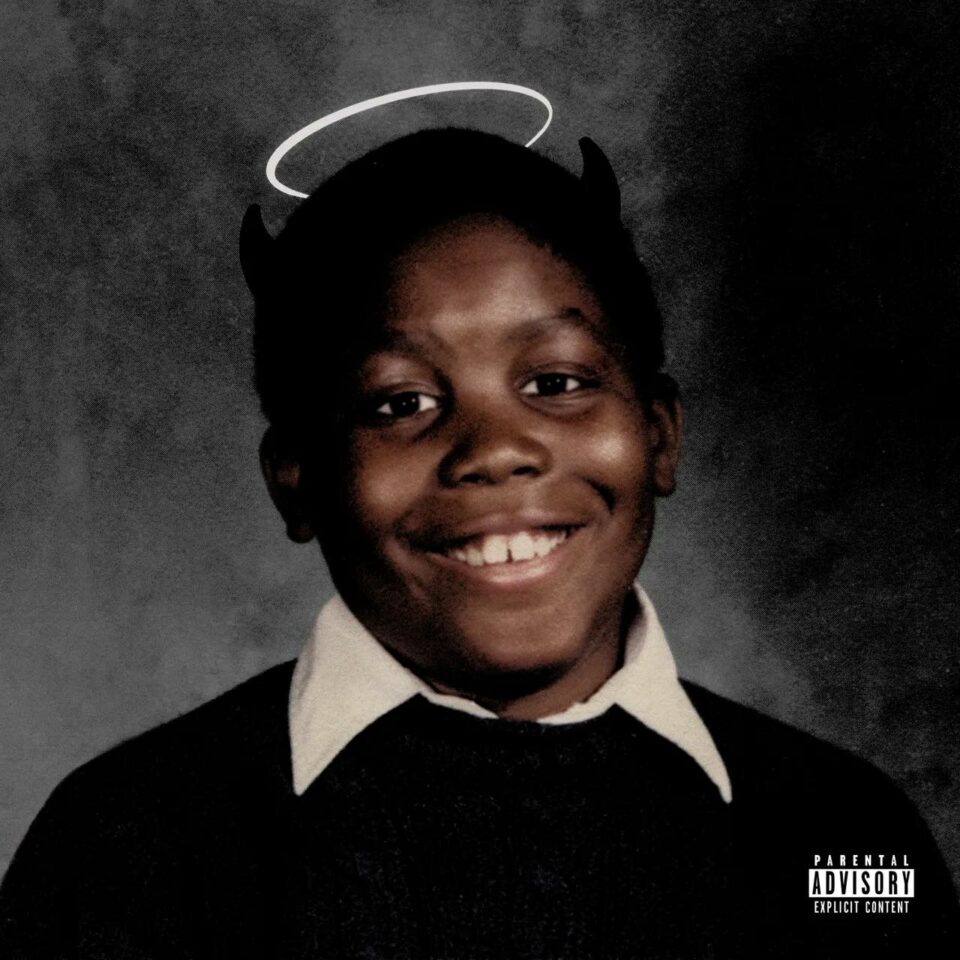
Killer Mike, Michael
If you’ve forgotten what Atlanta emcee and activist Killer Mike sounds like without fellow rapper El-P and the electro-induced Run the Jewels, you might be doubly surprised by his first solo album in over a decade. Anyone expecting the spare and open production of I Pledge Allegiance to the Grind, the synth-and-sample-strong R.A.P. Music, or either record’s politicized lyrics, guess again. An older, wiser Mike finds Southern comfort within the three-dimensional sound of Michael in vintage Georgian soul music, big live organ runs, tight Atlantan trap rhythms, and lyrics that tend to the hard work cut out for today’s better angels (“Don’t Let the Devil,” “High and Holy”) and his own, proud ability to avoid the inevitability of addiction and violence that’s plagued loved ones (“Run,” “Motherless”).
Mostly, though, Michael is a nostalgic, personal look back at a simpler, mesmerizingly empathetic time of pagers, ragers, and coming-of-age tales with his late mother and grandmother in the foreground of his mind. And just for the sake of respect, Mike brings back powerhouse vocalist and Dungeon Family member CeeLo Green from the purgatory of cultural disposability for an emotional, wow-moment album opener, “Down by Law.” And yes, El-P is here to remind you that these guys were besties before Run the Jewels, and operate on a level that no other rap twosome could dare hope to emulate. — A.D. Amorosi
Read our review of Michael here.

Liturgy, 93696
Haela Ravenna Hunt-Hendrix’s self-proclaimed “transcendental black metal” with Liturgy has never been shy about taking new shapes—expanding on the thundering riffs on 2011’s breakout Aesthetica with The Ark Work’s MIDI experimentation four years later, or HAQQ’s glitchy chamber metal another four years after that. 93696 offers a synthesis of everything Hunt-Hendrix has accomplished so far, with a confidence in scope that makes the record Liturgy’s most towering achievement yet. Building on the concept opera of predecessor Origin of the Alimonies, the four distinct movements of 93696 soar across choral passages, interludes that can hew orchestral or electronic, and guitar parts that ascend as if to the heavens.
There’s always been a spiritual grace to be found in Liturgy (even in Hunt-Hendrix’s threshing screams), and the scale of 93696 affords these moments of divinity more than ever—be it in the heralding cries of “Djennaration” or the cataclysmic onslaught of the title track. Through it all, what propels the record’s heft is Liturgy’s fierce pursuit of the catharsis their metal can create. On “Haelegen II,” a panicked riff backs Hunt-Hendrix’s voice—no longer in harsh howls, but through a vocoder—in her most vulnerable, wounded lyrics directly about transness (“I’m sorry I could never fully generate heaven / Gonads split open every time I tried to tuck away”). Beneath every seismic spasm of guitars and blast beats, beneath the complicated web of philosophical and theological underpinnings that drive the worlds Hunt-Hendrix crafts, it’s these stirrings—personal or spiritual—that make 93696 a staggering new high for Liturgy. — Natalie Marlin
Read our review of 93696 here.

Mandy, Indiana, I’ve Seen a Way
Mandy, Indiana make music fit for catastrophe—something ominous and frightening this way comes. On the opening track of I’ve Seen a Way, “Love Theme (4K VHS),” synths implode, water rushes in, and we’re sinking someplace dark. Loud alarms scream alongside skittering hi-hats and propulsive drums. The mysterious places this quartet takes us on their debut album are equal parts eerie, unnerving, thrilling, and insightful.
The Manchester four-piece reinstate how terrifying our reality is. Although their music sounds like a sci-fi novel set 500 years ahead of the present, vocalist Valentine Caulfield sing-speaks about our current degrading norms: “Men are going to look at you until you’re 23, 24 / So don’t miss your chance / And I prefer natural girls / But you look tired / And you should exercise your butt,” goes one lyric, translated from the band’s preferred French. The translation doesn’t capture Valentine’s stabbing, enraged delivery—“sourire,” she screams toward the end of the song, which translates to “smile.” The following track “Pinking Shears” has some of the album’s most frank and relatable lyrics: “You don’t know how tired I am / This shitty world has exhausted me.” Mandy, Indiana’s militant and shapeshifting sound maligns the current world in order to build their own. — Margaret Farrell
Read our review of I’ve Seen a Way here.

Samia, Honey
When you write with the kind of naked vulnerability Samia does, you’re constantly taking your audience through a diary-like journey of your own thoughts and experiences. There’s a fine balance of abstraction and hyper-specific detailing that makes Honey, the songwriter’s sophomore record, an enthrallingly relatable listen. The eerie first track “Kill Her Freak Out” feels haunted by oscillating synths as Samia indulges in a dark revenge fantasy. Prompted by her fear of losing someone, she aims to prove that she’s still worthy of love. Later down the line we get “Amelia” in which the blossoming indie-pop synths—as if surrounded by friends and a clear sense of love—exude brightness and color. It’s a night-and-day difference.
Working closely with songwriters Christian Lee Hutson and Caleb Wright, the trio’s shared creative inclinations result in an album that treads the line between indie and mainstream pop music. The fact that a lot of Samia’s songs originate from poems can offer little subtext, but it doesn’t matter when her lyrics provide a template for people to integrate them within their own experiences. One of the main messages we can take from Honey is that while finding comfort within yourself is a constant, ever-changing battle, self-recognition is a crucial step. In achieving this, you can open up and finally allow yourself to feel unburdened joy. — Matty Pywell
Read our interview with Samia here.

Sigur Rós, ÁTTA
Remember when Sigur Rós songs were like wallpaper—but really interesting, intricate wallpaper swatches with raised rococo designs and somber tones with tiny squiggles of Day-Glo zip within each square? ÁTTA, named as such for being the group’s eighth album (in their native Icelander lingo), takes those same somber reptilian morsels of mighty sound, infuses them with a heart-wrenching 40-plus person orchestra’s swell, glues each glum, thrumming track together in an unending pulsation, then turns its cloudy musical moments into one long cumulus burst. No, you won’t know where “Skel” drops off and “Kettur” picks up, and you won’t care either.
Bleating saxophone-like vocalist Jón Þór Birgisson (a.k.a. Jónsi) is in on the proceedings to poke holes through the densest of instrumental arrangements, and the trio’s cynical take on those pesky end-of-days moments as heard on “Blóðberg” make for some tense laughs if you’re savvy enough to pull out Google Translator. And while several tracks harken back to the group’s somnolent and gentle take on nature, most of ÁTTA is on an attack, with the clustering “Ylur” taking in all the hallmarks of isolation for a mucous-y, glad-to-be-unhappy paean to our dying world. — A.D. Amorosi
Read our review of ÁTTA here.

Water From Your Eyes, Everyone’s Crushed
Water From Your Eyes is kind of doing band lore in reverse. With each successive release, the New York duo has ventured further out into the unknown, putting ever more distance between their tuneful, if slightly conventional beginnings in favor of something much harder to place. That their cult continues to grow in spite of their increasing inscrutability speaks to the strength of their vision. This backward dialectic is mirrored in the songs the duo makes, too, which often pieces together sound elements and melodies at odd, almost incongruent angles. What might seem off or wrong at first listen reveals its logic over repeated spins and further immersion into Water From Your Eyes’ unique musical language. When you get to their level, the results are almost always thrilling.
This is especially true on their latest album and Matador Records debut Everyone’s Crushed, the band’s strongest statement of purpose yet. Reeling in some of the trickster antics of prior releases in favor of cohesion, Water From Your Eyes achieve addition by subtraction. Rest assured, there’s still plenty here to trip you up, especially on the twisted and cyclical title track. Nate Amos’ jagged guitar scratches cling onto a slippery drumbeat for dear life while Rachel Brown turns a simple two-line lyric nearly psychedelic by changing the subject with each repeated uttering. That said, there’s something especially canny about naming the album’s most straightforward track “Buy My Product.” It’s about as close to “traditional” indie pop as they’ll ever get when Brown demands that you buy their product, now. — Dillon Riley
Read our interview with Water From Your Eyes here.
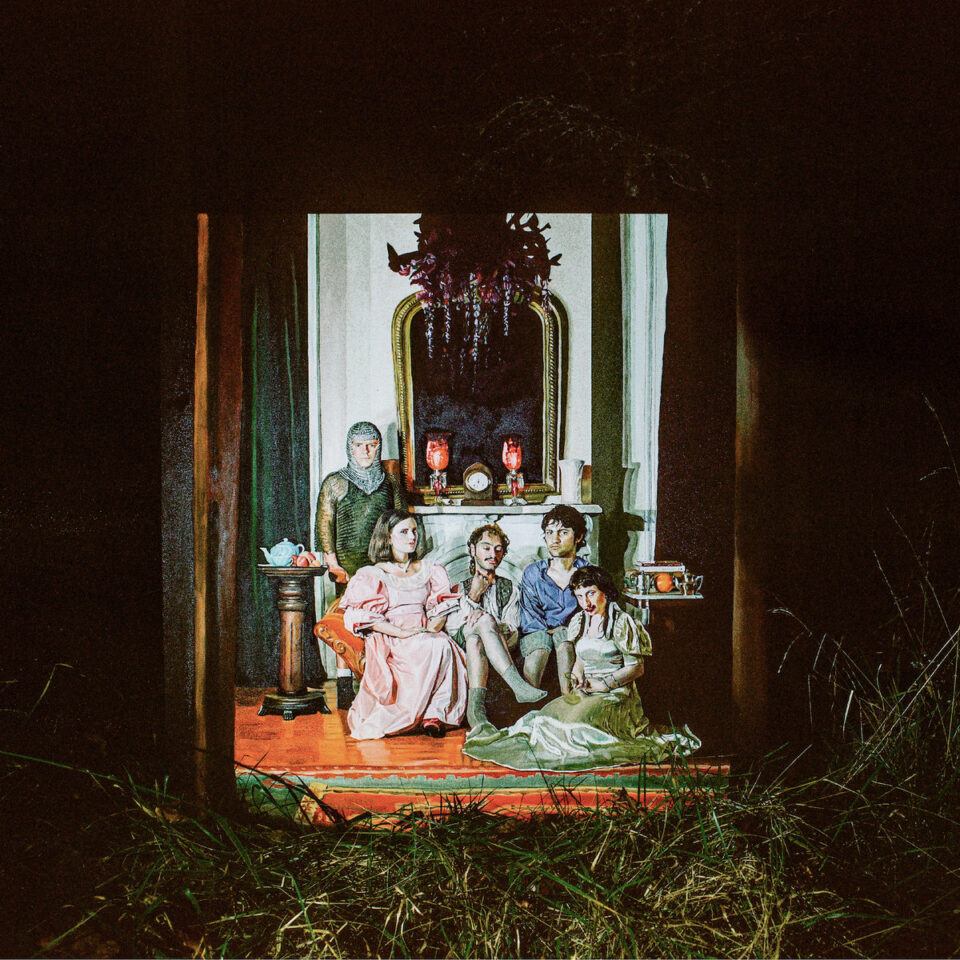
Wednesday, Rat Saw God
Some albums live up to the hype and some transcend it. Wednesday’s fourth LP Rat Saw God is the kind of record that started gaining steam months before its release, with many heralding the Asheville-based band as the pinnacle of the new wave of alt-country that continues to roll through the indie-rock landscape. Then they dropped one of the best records of the year, regardless of genre. For much of Rat Saw God, Wednesday is a chainsaw cutting through a cinder block, with Karly Hartzman’s serrated vocals and MJ Lenderman’s gravelly guitar work leading a band begging to play as loud—and for as many people—as possible.
Just as impressive, though, are the moments of relative quiet—the Harvest to the rest of the record’s Rust Never Sleeps—and how these seemingly opposing forces work so well in tandem. Hartzman is clearly a gifted storyteller but never a pushy one. Her tales of watching someone play Mortal Combat and blasting Drive-By Truckers find their way to the light like weeds through a broken sidewalk. It all comes together on “Chosen to Deserve,” an all-timer in which Hartzman runs through a laundry list of debauched childhood memories in one of the sweetest, loudest, and most striking songs in recent memory. — Sean Fennell
Read our interview with Wednesday here.

Wicca Phase Springs Eternal, Wicca Phase Springs Eternal
Traditionally, when an artist releases a self-titled album a decade or so into their career, it’s a statement of intent—a belated thesis of sorts reassessing where the project has taken them in the past and outlining where it’s going next. Which is likely something many of us have been wondering about Wicca Phase Springs Eternal, the cloud-rap moniker Adam McIlwee took on after stepping away from fronting Tigers Jaw. His decade-old self-released debut seemed to embrace a premature witch house revival just as earnestly as it does the hashtag in its album title.
And now that we know that the resurrection of that genre was entirely warranted, this self-titled seventh record marks McIlwee’s biggest step away from it. There’s still plenty of goth-trap beats, to be sure, but the release is just as firmly padded out with timid forays into stripped-bare Americana and boisterous statements of vintage new wave—to say nothing of the record’s standout single “Farm,” which, following a nearly Lonely Island–like opening proclamation, treads rural lyrical terrain over the hardest breakbeat this side of Prodigy. Like the conceptual multiverse of Gothboiclique that Wicca Phase resides within, there’s no shortage of directions for the project to take in the decade to come. — Mike LeSuer
Read Wicca Phase Springs Eternal’s track-by-track breakdown of the LP here.

Y La Bamba, Lucha
The latest LP from Y La Bamba often speaks quietly, but its praises should be shouted from the rooftops. With their seventh album, the experimental group proves that they’re the best Latin music–informed indie-folk-meets-pop combo you’re likely to find in their hometown of Portland—or anywhere else, for that matter. In a conversation with Y La Bamba front person Luz Elena Mendoza Ramos, our own Juan Gutierrez noted that Lucha is “an album that explores identity and relationships, from the intimate to the familial.”
And even when not following along with the lyrics, Lucha reaches that same level of purity through their brilliantly produced musicality (especially on the peppermint-flavored “Collapse,” the hushed “La Lluvi de Guadalajara,” and the Hawaiian-sounding epic “Hues” with Devendra Banhart). Surrounding the creation of Lucha, Ramos lost a close friend, battled health problems, and mastered the art of being sad. The musician said in May that this record may be the last one for Y La Bamba, and that touring may never happen again either. While that hopefully doesn’t come to fruition, this record’s strongest suit is its mastery of portraying sadness, loneliness, and, potentially, finality. — Kurt Orzeck
Read our interview with Y La Bamba here.
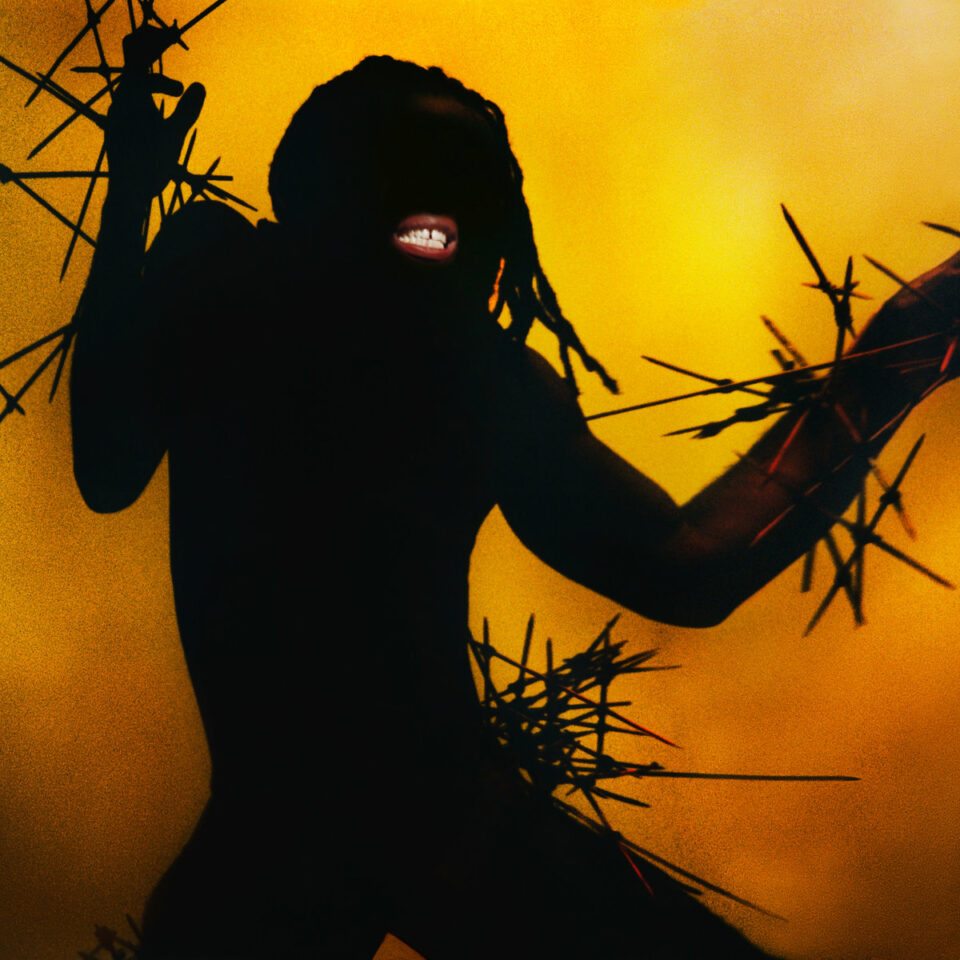
Young Fathers, Heavy Heavy
For one of the most joyous, liberating listens of the year so far, look no further than Heavy Heavy. Edinburgh trio Young Fathers emerged from a five-year hiatus with new music that accentuated the best parts of their ethos, where mistakes are encouraged in order to create something completely unique. They may be hard to pin down when it comes to the categorization of their sound, but it’s one of their greatest strengths as we witness a relentless switch-up between pop, rock, and hip-hop elements throughout their latest release.
Band member Kayus Bankole made visits to Ghana and Ethiopia in the time since 2018’s Cocoa Sugar, where the impulsiveness of the music there left its mark. You can hear it in the wild calls of “I Saw” and the loud yelps that build the foundation of “Ululation.” The latter is an example of what makes Heavy Heavy one of the most unique records of the year, as these howls entwine with a graceful, serene string section in order to create something viscerally moving—a thrilling, high-energy celebration in one singular moment. Young Fathers are a band who have always been determined to follow their own path, and returning from their break has led to a sense of further creative liberation. You can feel the power of these songs flowing through your veins. — Matty Pywell
Read our interview with Young Fathers here.
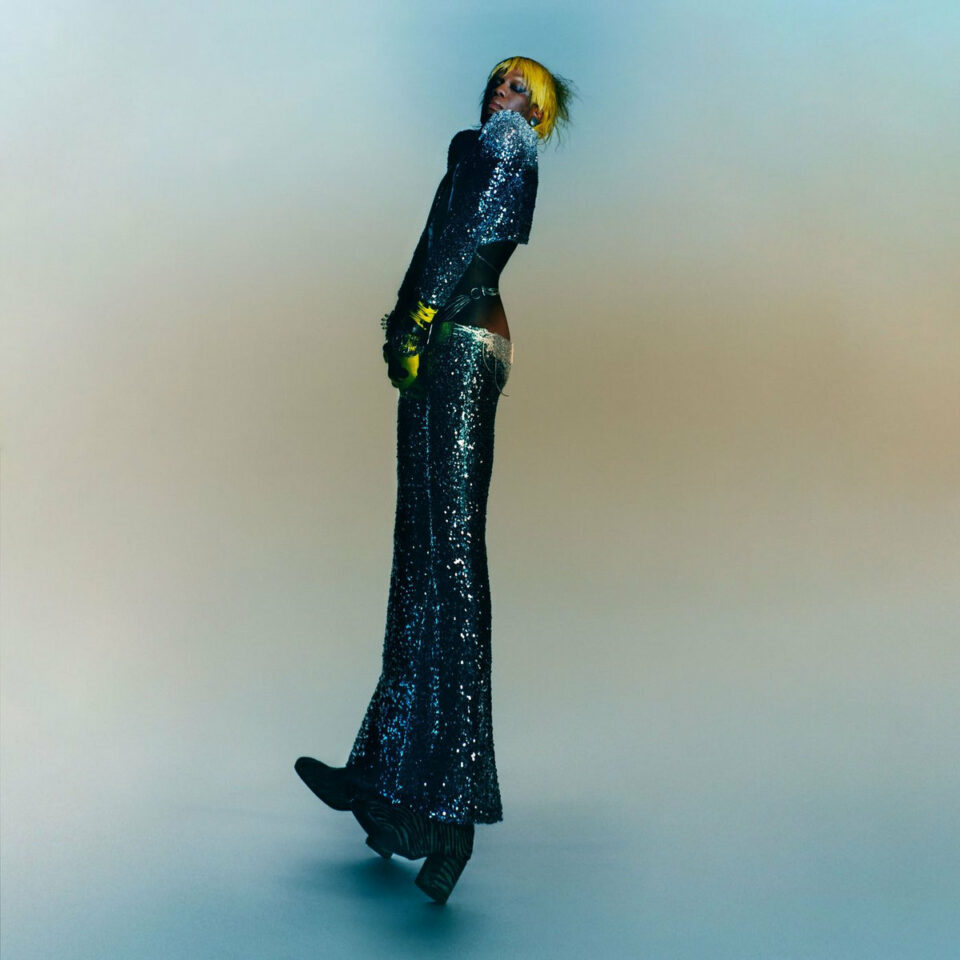
Yves Tumor, Praise a Lord Who Chews but Which Does Not Consume; (Or Simply, Hot Between Worlds)
Yves Tumor exists at the crossroads of genre. Their latest album, Praise a Lord Who Chews but Which Does Not Consume; (Or Simply, Hot Between Worlds), is Tumor’s fifth, and it encompasses all the musical styles of its predecessors. Electronic post-punk is the far-reaching framework that Tumor explores on this album whose title—as well as those of a few songs—has a decidedly divine slant to it. With each new release, Tumor reveals more of themself, and Praise a Lord uncovers multiple layers. The production skills of Noah Goldstein and the mixing acumen of veteran Alan Moulder allow for bold sonic adventures—think Nine Inch Nails meets My Bloody Valentine.
But the record takes a number of disparate directions veering away from these two poles, as heard on the rock ballad “Meteora Blues” (which has more than a few strums in common with Oasis’ “Wonderwall”), Tumor’s take on the psychedelic dreaminess of Tame Impala on “Parody,” their nod to shoegazing pioneers Ride on “In Spite of War,” and the cheerleading chant gone wrong “Operator.” But they’re all held together with a through-thread of dissonance. With this much noise scramble, the quiet “Interlude” is a welcome mid-album breather. Alternating between their soothing baritone and an uncomfortable falsetto, it’s the questions Tumor asks and the statements they make in the lyrics that pack the most punch: “Dressed in the devil’s clothes / I hear that angels lie, too.” — Lily Moayeri
Read our review of Praise a Lord Who Chews but Which Does Not Consume here.







